Search Results
Showing results 41 to 60 of 112

Exploring Fabrication: Gummy Capsules
Source Institutions
In this activity, learners make self-assembled polymer spheres.
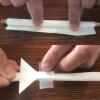
Straw Rockets
Source Institutions
In this activity, learners will create unique rockets. Each rocket will be powered by air as the learner will blow into a straw and watch their rocket fly.

Build a Giant Puzzle!
Source Institutions
In this activity, learners assemble large cubes to make nano-related images. Learners discover how different objects are related to nanoscience and nanotechnology.

Flower Power
Source Institutions
In this activity, learners will experiment with changing flower colors. Learners will investigate the effects of acids and bases on flower colors.
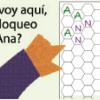
Bloqueo
Source Institutions
Jugando a este juego, los chicos desarrollan habilidades de lógica, geometría, y visualización espacial. Los jugadores empiezan con una red de hexágonos vacía.

Stack 'Em Up
Source Institutions
In this simple and fun activity, learners build a tower of cups to explore distribution of weight. Learners make predictions about their towers and test their designs.
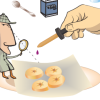
Iodine Investigators!
Source Institutions
In this activity on page 7 of the PDF (Chemistry—It’s Elemental), learners use iodine to identify foods that contain starch.

Exploring A Hydrogel
Source Institutions
In this activity on page 10 of the PDF, learners develop an experiment to answer the following question: "How much water can the hydrogel in a baby diaper hold?" Use this activity to explore polymers,

New Sense about Cents
Source Institutions
In this activity on page 6 of the PDF (Chemistry—It’s Elemental), learners explore some of the properties of copper using a few common household ingredients.
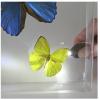
Exploring Structures: Butterfly
Source Institutions
In this activity, learners investigate how some butterfly wings get their color.
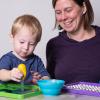
Exploring Science Practices: Early Explorations
Source Institutions
This activity gives caregivers and their children an opportunity to practice scientific ways of thinking that are developmentally appropriate for early learners.
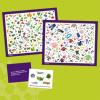
I Spy Nano!
Source Institutions
In this game, learners try to find nano-related objects on a game board. Learners investigate the different ways nano is in the world around us.
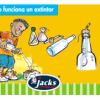
Como funciona un extintor
Source Institutions
In this Spanish-language chemistry activity, learners use simple materials to explore how fire extinguishers work to put out fires.

Exploring Fabrication: Self-Assembly
Source Institutions
In this activity, learners participate in several full-body interactive games to model the process of self-assembly in nature and nanotechnology.

Safe in the Sun
Source Institutions
In this activity on page 13 of the PDF, use a special plastic card that has been painted with a chemical that changes color when it is in UV light.
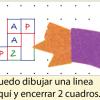
Puntos
Source Institutions
Jugando a este juego de estrategia, los chicos desarrollan su entendimiento sobre cuadrados, área, y perímetro. En su turno, cada jugador hace una línea entre dos punto contiguos en la cuadrícula.
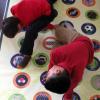
Exploring Size: StretchAbility
Source Institutions
In this game, learners explore the different sizes of things in the world. In this Twister-like game, learners must place a hand or foot on a circle of the right scale - macro, micro, or nano.

Screaming String Thing
Source Institutions
In this simple and fun activity, learners discover the relationship between vibration and sound by making a squeaky toy instrument out of simple household materials.
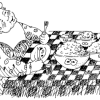
Three Bean Salads
Source Institutions
This game teaches ratio and proportion by having learners make "salads" that combine three types of beans in different combinations.

pH Scale
Source Institutions
In this online interactive simulation, learners will test the pH of liquids like coffee, spit, and soap to determine whether each is acidic, basic, or neutral.
